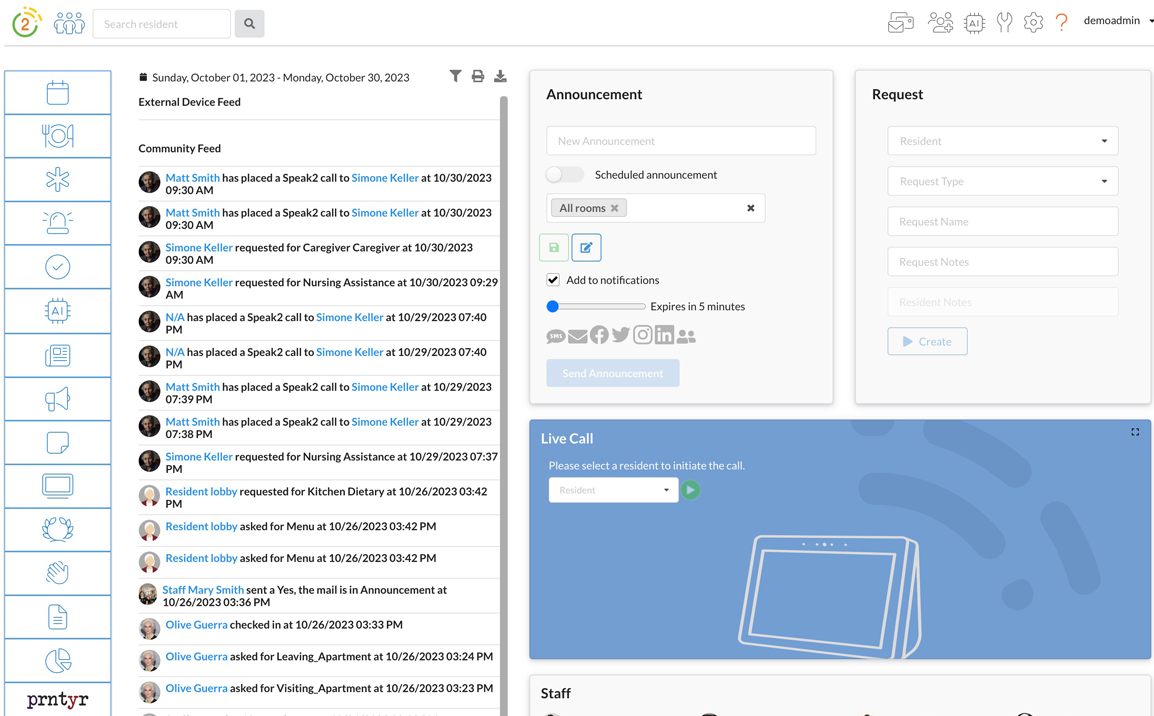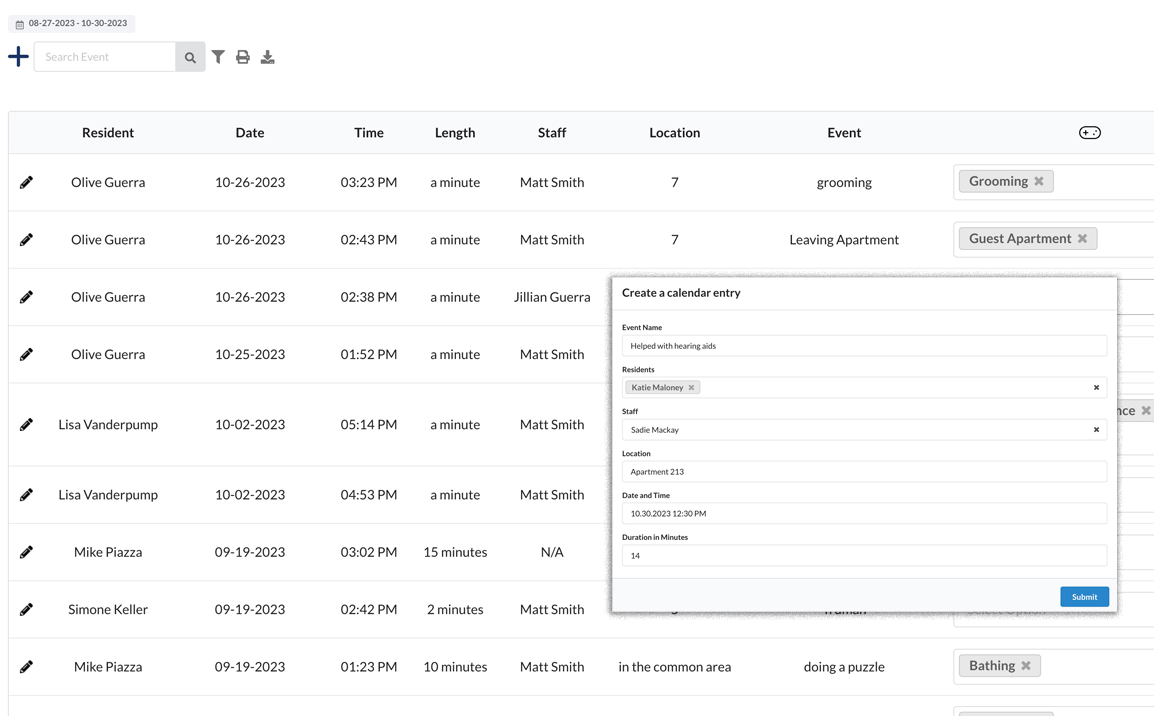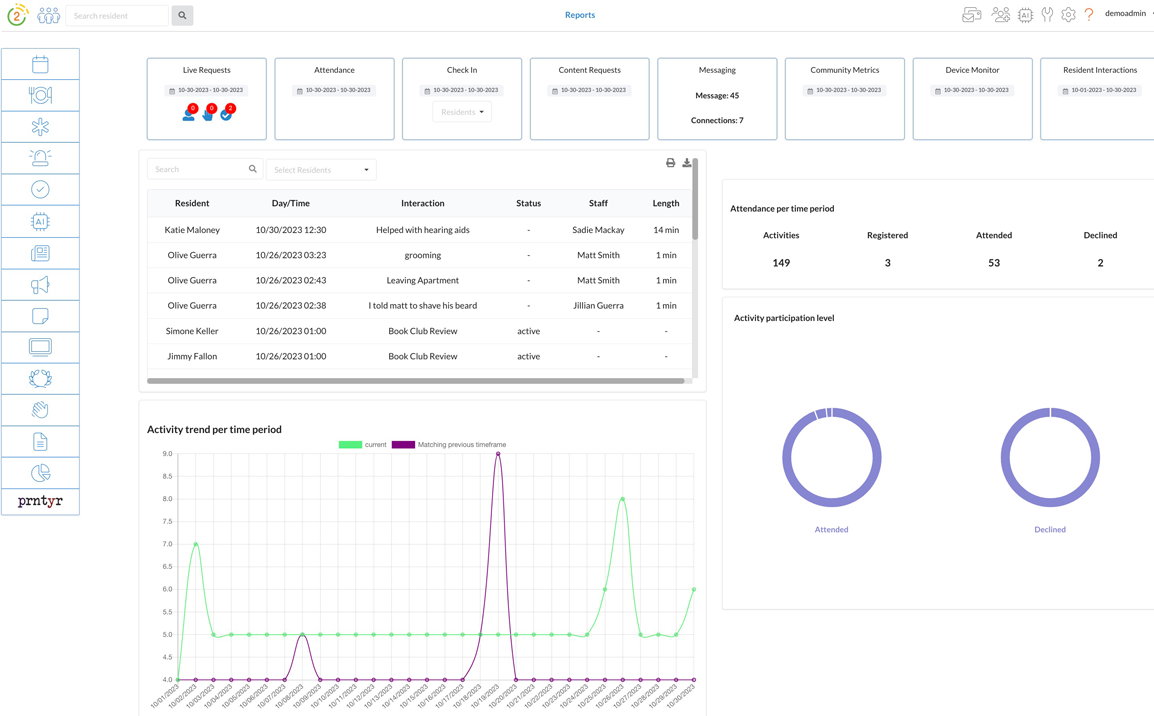Increase Revenue
Capture previously lost revenue by empowering your staff with the right tools.
Capture previously lost revenue by empowering your staff with the right tools.
Increase productivity, collaboration and engagement. Lessen data entry.
Get more with your existing tools and turn the staffing crisis upside down
TELL ME MORE!
We know staffing is your most important function, and also largest expense. Hands-free data entry, scheduled and real-time announcements, video calling, and more lead to powerful efficiencies.

Capture all services and interactions effortlessly! Provide staff different ways to capture services and learn the details of what works, and what doesn't. Stop leaving revenue unidentified and uncollected.

Make it easy for staff to share information and make that information drive revenue and illustrate valuable patterns. Using AI, you can capture so much more and actually do something with it.

Schedule a demo with us. Experience what's next in Senior Living.
Schedule Time